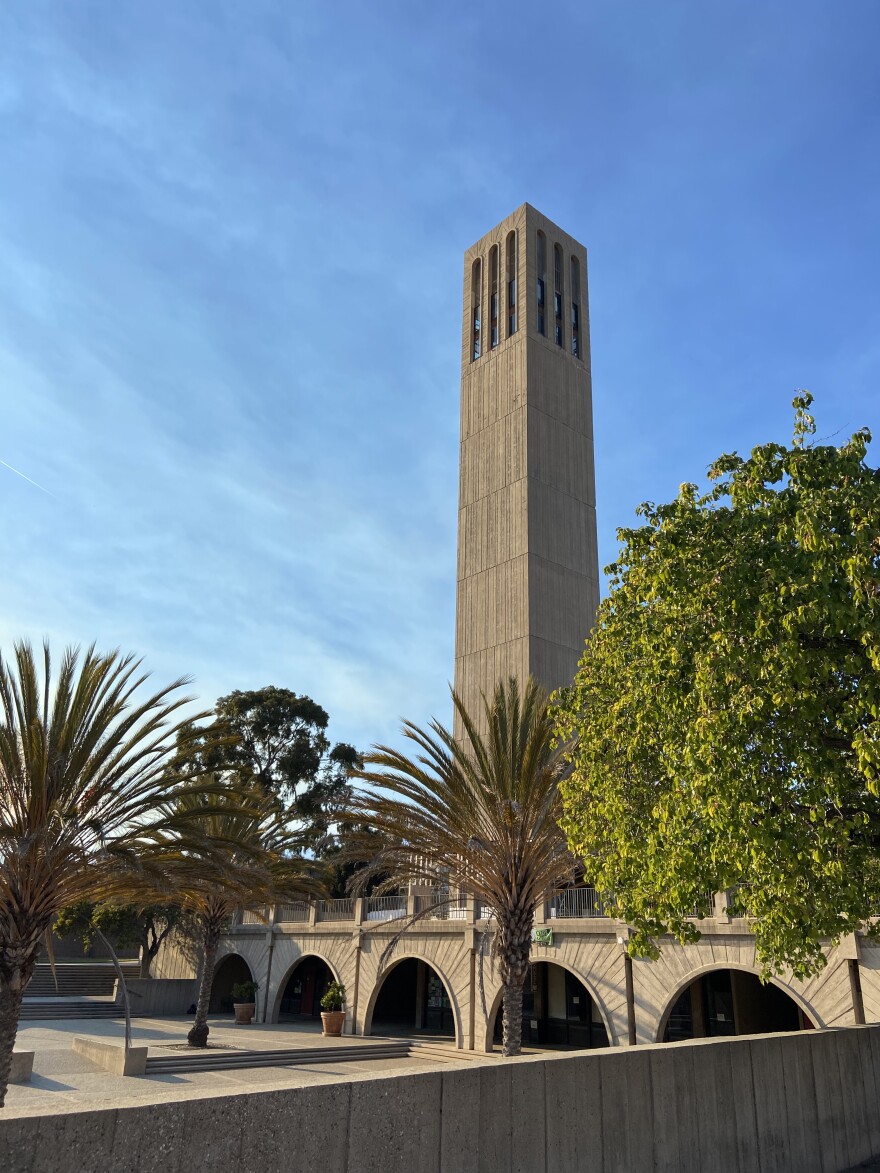After two years of upheaval and uncertainty, Alexis Crisostomo will enter her third year at UC Santa Barbara this fall.
She had successfully navigated her freshman year, the 2020-2021 school year, online. As a sophomore, she finally got to return to campus the following year. But when she did, Crisostomo said she felt behind.
"I felt like I had to catch up socially, but also working and also trying to get around campus, knowing campus, but also trying to get involved in the different [organizations]," she said.
Alexis said she discussed with other students the struggles of adapting to on-campus life, as they all had to learn to navigate the space in their second years.
"I had talked with my roommate and my other friends who were the same year as me. I felt like since we didn't have that first year, we kind of had to catch up and try to know to where we fit in the campus," Crisostomo said. "Because now during your second year, we're supposed to kind of still have some idea of where we're heading, but how am I supposed to have an idea of where I'm heading when I just got here?"
Life wasn’t back to pre-Covid norms, either. Professors taught in masks, for one. Dr. Maryam Kia-Keating is a licensed psychologist and professor at UCSB.
"That was the first change for me that struck me. Having to speak for a long time especially as a professor when you’re lecturing or when you’re talking," Kia-Keating said.
Kia Keating wore her mask in public throughout the pandemic, so it wasn’t a new feeling. But teaching in a mask posed unique challenges when it came to projecting and articulating in front of a classroom. And then there were the lessons themselves: some students struggled to sit through long, in-person lectures after a year away. Kia Keating says that she made adjustments.

"Whereas before maybe we took a short break, people needed some ‘go outside, breathe some fresh air, go back in’ breaks and just maybe some breaks for the classroom in general, because nobody was used to being back," she said.
Then winter quarter arrived, and with it, the Omicron variant. It sent everyone off campus again and back to online learning. Kia Keating explains how, from a psychological perspective, this uncertainty throughout both 2020 and 2021 was mentally challenging.
"We find that a lot of times when people know what to expect, even when it’s difficult, it’s a lot easier on your mental health. When it’s unexpected, that’s when it can really be more difficult to get through," Kia-Keating said.
On top of all this uncertainty and change, many students returned to campus with a sense of loss. Dr. Natalia Jaramillo earned her Ph.D from UCSB, and has worked with students throughout the pandemic. She said that, while she was impressed with students’ resilience and flexibility, she recognized that their young adulthood had changed fundamentally due to the pandemic.
"We tend to think about emerging adulthood as this stage of exploration and opportunities marked by a sense of possibilities, and I think that’s shifting because of Covid 19," Jaramillo said.
Alexis Crisostomo, the rising junior, put it this way: "I had lost so much. I'm lucky that I didn't have to lose people, but I did lose connections with people. At one point, it was really tough even because my AP exams had moved online, and then that messed up so I had to take it during the summer. And then during that summer, there was a wildfire, so I was evacuated from my home."
Returning to campus didn’t erase the instability of the past two years. Crisostomo wants professors to understand that students weren’t just lazy, coming back to the classroom. They were adjusting, yet again, to a new set of expectations.
"I came into my first year like that, and then I had to relearn school online. And so, to come back to campus and kind of expect everything going back to normal, that's really unrealistic because we're really exhausted," Crisostomo said.
So, what is a new normal? Crisostomo feels professors can support students by thinking critically about what resources put into place during remote learning can help students now.
"Maybe changes to education in certain ways, from granting extensions to certain accommodations — so maybe reevaluating the traditional classroom setting," she said.
Professor Kia-Keating agrees. She thinks that everyone, not just professors and students, should consider how to implement positive changes in learning — and in life — based on their experiences studying and teaching through Covid.
"Maybe are there even opportunities here, so that it’s not just lost time," she said. "Like we don’t look back like, ‘Oh, remember 2020 when everything was crazy? And thank goodness we just did everything back to normal, back to what we did before?’ Instead, sort of thinking, ‘Well, what was it during that time that actually might have even been better?’"
Crisostomo, Jaramillo and Kia-Keating all feel academic and mental health resources will help students thrive going forward.
Alexis Crisostomo will enter her third year at UCSB this fall.




